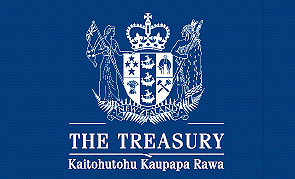
The New Zealand Debt Management Office (NZDMO) aims to issue its first inflation indexed bonds in 11 years later this year and hopes they will be made available for ‘ma and pa’ retail investors to buy.
Philip Combes Treasurer of the NZDMO, told interest.co.nz the Treasury unit was planning to invite banks to express interest in being part of a syndicate to manage an issue programme within a month.
Combes said issuing debt via a syndication would be a new step for the NZDMO, which typically issues bonds via a tender process. The first offer was likely in October or November, although this could be delayed if market conditions weren’t favourable.
He said the NZDMO hadn’t yet determined the size of the programme but was using the Australian Office of Financial Management’s inflation indexed bond programme as a guide.
“The only guide (on deal value) I’m happy to give is the Aussies who ran a A$4 billion programme,” Combes said.
“The equivalent for us, given relative size of markets, would be somewhere between NZ$800 million and NZ$1 billion, given Australia is four to five times bigger in most things including their bond programme.”
He did, however, stress the Australian size was only a guide and the NZDMO was still quite open on its programme’s size.
The Australians describe their Treasury Indexed Bonds as medium to long-term securities for which the capital value of the security is adjusted for movements in the Consumer Price Index (CPI). Interest is paid quarterly, at a fixed rate, on the adjusted capital value, At maturity, investors receive the adjusted capital value of the security - the value adjusted for movement in the CPI over the life of the bond.
New Zealand, Australian and European fund managers were seen as the primary investors, but Combes was also hopeful retail investors would get a slice of the action.
“As is the case with our nominal bonds as well, there’s nothing to stop these bonds being purchased by banks and then subsequently being sold down in retail sized parcels,” Combes said.
“That’s something that we’d be quite keen to see.”
The NZDMO flagged possible CPI linked bond issues in May’s Budget as part of an issuance of up to NZ$12.5 billion worth of bonds in the 2010-11 financial year. It hasn’t issued such bonds since 1999 with just one remaining on issue with a face value of about NZ$1.17 billion. It matures in February 2016. The move comes as Treasury forecasts inflation to almost treble to 5.9% next year and follows the government’s Capital Markets Development Taskforce recommendation and Australia’s reintroduction of indexed debt last year.
Combes said the government was likely to take on the inflation exposure directly. It was "most unlikely" this would be hedged out.
"In other words we would see the point for us of issuing them is basically to develop this market and we think there's a case that can be made for the government borrowing on an inflation linked basis because some of the expenditure that will be financed by these bond issues will itself be linked to inflation," Combes said.
"And what we've got in mind there is certainly infrastructure products," he added, which would have some aspect of revenue linked to inflation. Furthermore, it would be easier for other companies to follow Transpower and issue their own inflation linked bonds once the government was in the market and had created a benchmark.
In May Transpower became the first New Zealand company to issue CPI linked bonds. Its 10-year bonds will pay interest of 4.115% on the principal on each quarterly payment date with the principal ratcheting up by reference to CPI meaning, therefore, the cash interest amount payable is also increased. Westpac, the manager of Transpower's offer, established a CPI swap to cover the inflation exposure.
Meanwhile, Combes said the NZDMO was working on what the structure of its syndicate might be, how many banks would be part of it and what their roles would be. It had not yet specifically invited banks to express interest in being part of the process. Ultimately the NZDMO expected the banks in the syndicate would be ones who had experience in similar syndicated, inflation indexed bond deals.
Last year Deutsche Bank, RBS Group and UBS were appointed joint lead managers of the Australian programme with Citigroup, JP Morgan and Westpac co-managers.
This was first published this morning in our Daily Banking and Finance newsletter, which is for our paying subscribers. Find out more here.

We welcome your comments below. If you are not already registered, please register to comment
Remember we welcome robust, respectful and insightful debate. We don't welcome abusive or defamatory comments and will de-register those repeatedly making such comments. Our current comment policy is here.